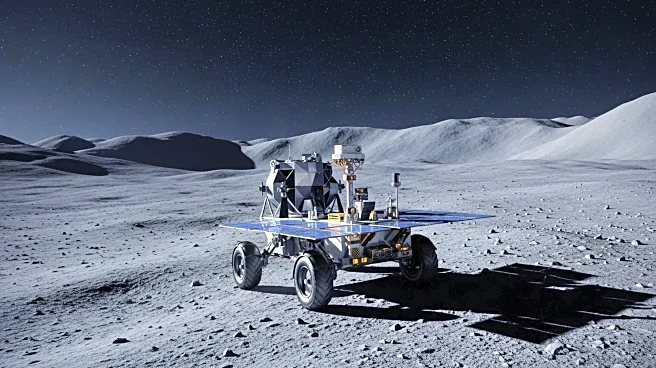What's Happening?
During a Senate Commerce Committee hearing, experts expressed concerns that China may surpass the United States in lunar exploration. China's recent tests of its 'Lanyue' lunar lander and other advancements suggest it could land astronauts on the Moon before the end of the decade, potentially ahead of NASA's Artemis 3 mission scheduled for 2027. The hearing highlighted the impact of budget cuts under President Trump on NASA's operations, which could hinder the agency's ability to compete in the space race. Lawmakers stressed the importance of maintaining U.S. leadership in space exploration.
Why It's Important?
The potential for China to lead in lunar exploration has significant geopolitical implications. The nation that establishes a presence on the Moon first could influence international space policies and resource utilization. The U.S. risks losing strategic advantages in space technology and exploration, which could affect national security and economic interests. Maintaining competitiveness in space exploration is crucial for technological innovation and international collaboration. The situation underscores the need for stable funding and strategic planning for NASA's programs.
What's Next?
NASA may face increased pressure to accelerate its Artemis program and secure funding to support lunar exploration efforts. The agency might explore partnerships with private companies like SpaceX to overcome technical challenges. Lawmakers could propose legislative measures to ensure consistent funding and support for NASA's initiatives. The international space community will likely monitor developments closely, as the race to the Moon could reshape global space exploration dynamics.










